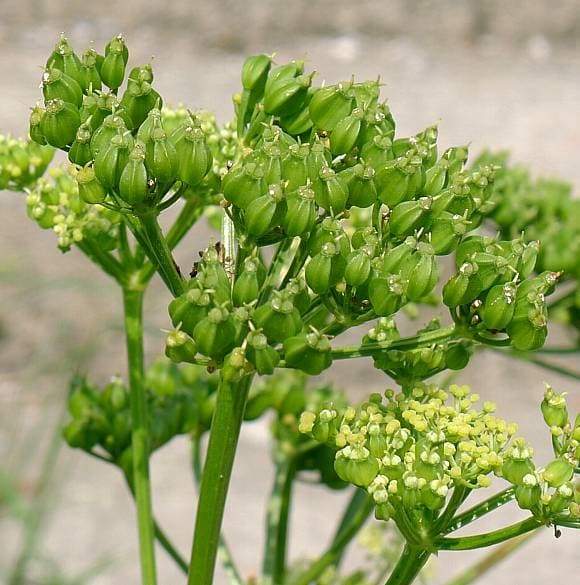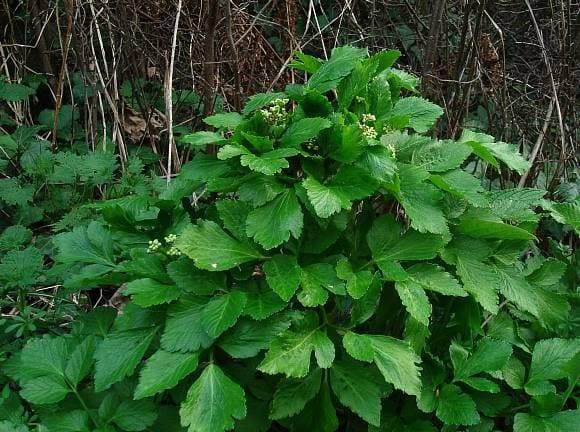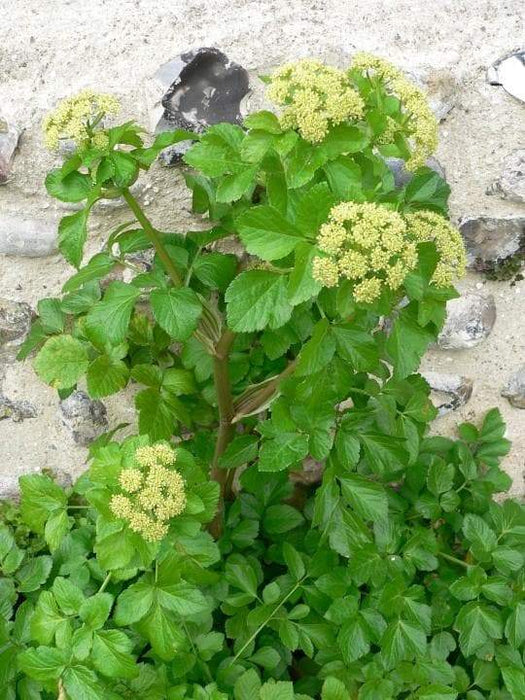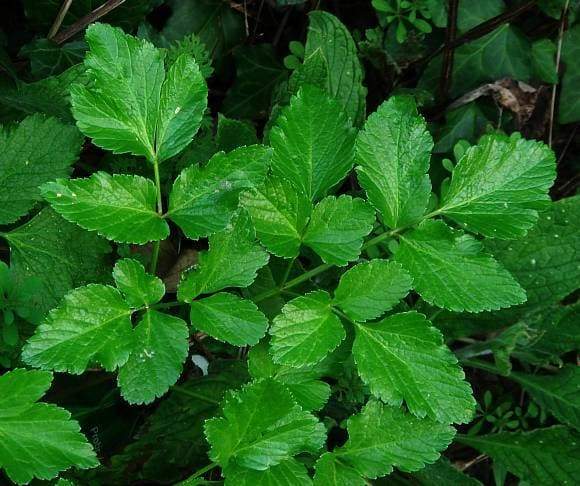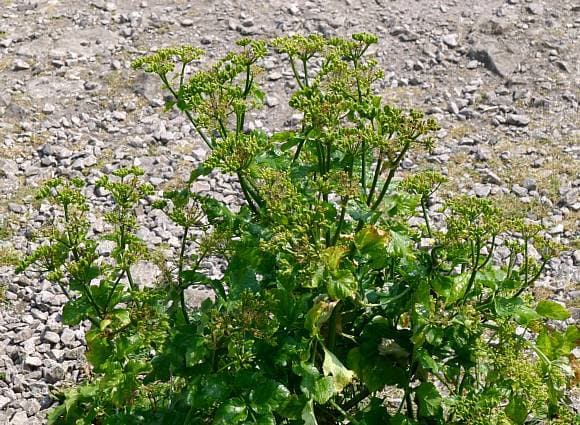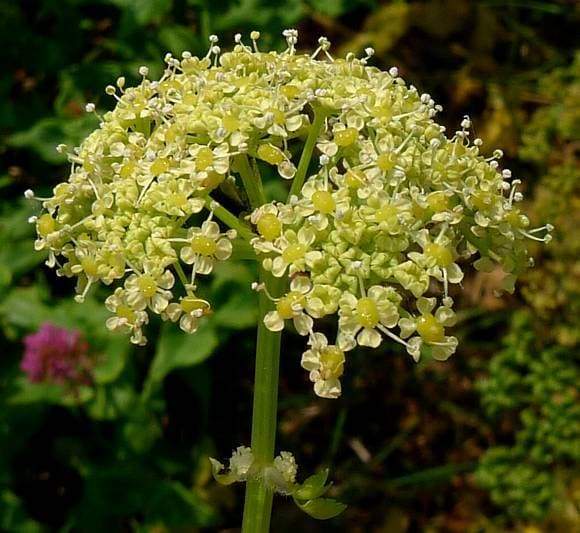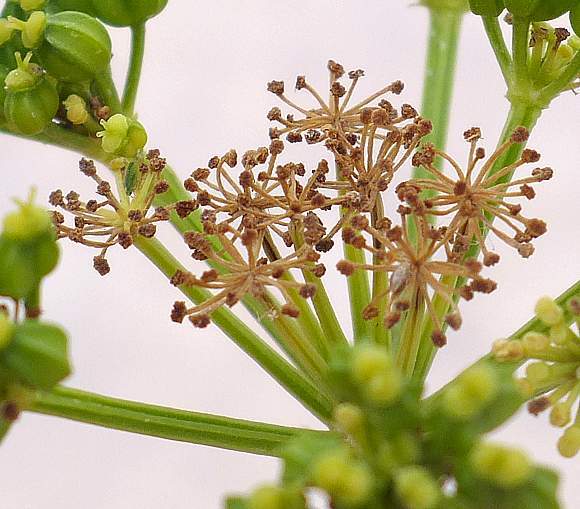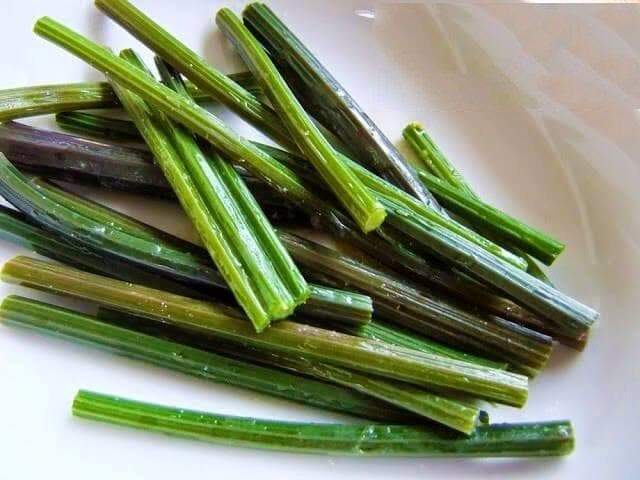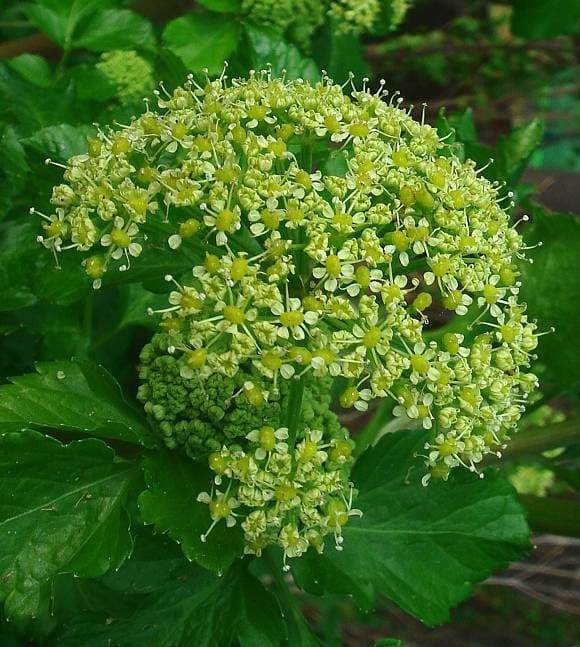
Alisanders, AKA Black Lovage SEEDS (SMYRNIUM olusatrum) Perennial Herb !
Most orders are processed by the next day
Select your desired size and/or color from the available options.
Alisanders, Black Lovage
Wildflower of Britain and Ireland
This biennial wild flower, with dark green, shiny leaves and umbels of yellow-green flowers can be grown as an ornamental or can be put to use as a culinary herb or spice, the flavour is said to be similar to myrrh.
Culinary Use:
Leafy seedlings can be used as a parsley substitute. Use leaves as a pot herb, in much the same ways as celery or lovage, as flavoring for soups, stews and sauces accompanying meat and fish. They impart a pleasant flavour similar to celery, although somewhat sharper.
Flower buds can be used raw, steamed or pickled, they can be added to salads and go well with fish or with a strong, hard cheese,
Use the roots as parsnip substitute or they can be preserved in a sweet-and-sour pickle. The root is said to be more tender if it has been kept in a cool place all winter
Seeds can be used to add flavor to stocks, stews, soups and to flavor rice. They contains an essential oil, cuminal, which is reminiscent of cumin and myrrh.
Sowing:
Seeds require a period of moist, cold conditions before they will germinate.
They are easiest grown when sown directly outdoors in a seedbed in autumn and transplanted into its permanent position in late spring.
At other times of year, seeds can be sow seeds into pots or trays and stratified by placing in a cool place for four to twelve weeks and then brought into the warmth for germination. Patience is required as germination can be slow.
Easy to grow, transplant out into garden in spring or in autumn, into a sunny position with well drained, moisture retentive soil.
Cultivation:
The following year, feed and water the seedlings frequently. Use an organic fertiliser especially if the plant is to be eaten. In mid season, prune the stems to keep the plants about 60cm (24in) tall.
In autumn, cover them with tall baskets to blanch the leaves and stems to make them sweet and tender. Hardy to about minus 15°C. (5°F). Mulch seedlings in areas with harsh winters.
Select your desired size and color from the available option
LET OUR CUSTOMER SPEAK FOR US

![[Seeds] - Caribbeangardenseed](http://caribbeangardenseed.com/cdn/shop/files/gift-card-gift-card-1_1024x1024_dfa857db-9150-4315-a362-7f0bb3fb9c47_60x28.png?v=1703978838)
